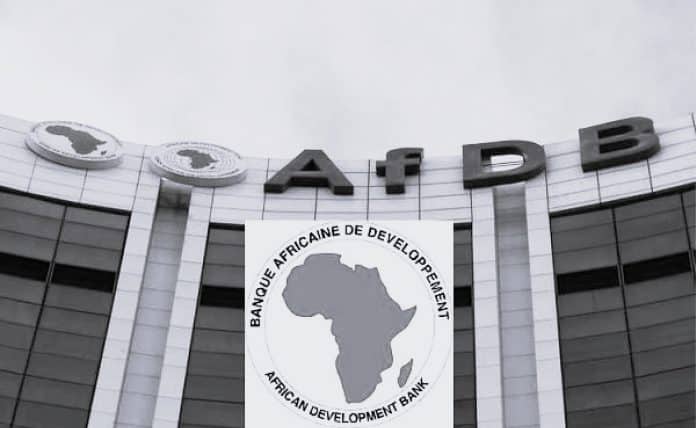Empowering Tanzanian Progress: Exploring the African Development Bank’s Impact on Infrastructure and Economic Stability
In recent years, Tanzania has experienced remarkable growth in its infrastructure and economic stability, thanks in part to the African Development Bank’s (AfDB) efforts to empower the nation. With its strategic focus on supporting sustainable development projects across Africa, the AfDB has played a pivotal role in Tanzania’s progress.
Through funding and technical expertise, the African Development Bank Tanzania has facilitated significant improvements in essential infrastructure sectors such as transportation, energy, and water supply. These advancements have not only enhanced connectivity within the country but have also attracted foreign direct investment and boosted trade opportunities. As a result, Tanzania’s economy continues to flourish, providing its citizens with improved access to education, healthcare, and employment opportunities.
However, the AfDB’s impact on Tanzania extends beyond infrastructure development. The institution has also been actively involved in promoting economic stability through initiatives that foster inclusive growth, job creation, and poverty reduction. By working closely with the Tanzanian government and other stakeholders, the AfDB has been instrumental in building a more resilient and prosperous future for the nation.
In this article, we will explore in detail the African Development Bank’s impact on Tanzania’s infrastructure and economic stability, highlighting the transformative projects that have propelled the country forward.
Importance of infrastructure development in Tanzania
Infrastructure development plays a crucial role in Tanzania’s overall economic growth and development. The country’s vast potential can only be fully realized with the presence of well-functioning transportation networks, reliable energy supply, and efficient water management systems.
Improved infrastructure not only enhances connectivity between regions but also facilitates the movement of goods and services, ultimately boosting trade and attracting investments. Additionally, quality infrastructure is vital for the provision of essential services such as healthcare and education, improving the overall well-being of the population.
Recognizing the significance of infrastructure development, the AfDB has been actively involved in funding and supporting projects that address Tanzania’s infrastructure gaps. By focusing on key sectors such as transportation, energy, and water supply, the AfDB has contributed to the country’s overall progress and economic stability.
Overview of the AfDB’s role in Tanzania’s infrastructure projects
The African Development Bank Tanzania has been a key partner in Tanzania’s infrastructure development journey. Through its financial resources and technical expertise, the AfDB has supported numerous projects aimed at enhancing transportation, energy, and water supply infrastructure.

In the transportation sector, the AfDB has funded the construction and rehabilitation of roads, bridges, and ports, improving connectivity within Tanzania and with neighboring countries. For example, the AfDB provided financing for the construction of the Bagamoyo port, which has the potential to become a major trade hub in East Africa.
In the energy sector, the AfDB has invested in renewable energy projects, such as solar and hydroelectric power plants, to increase access to clean and reliable energy sources. These projects not only contribute to Tanzania’s sustainable development goals but also create job opportunities and reduce dependency on fossil fuels.
The AfDB has also played a critical role in improving water supply infrastructure in Tanzania. By financing the construction of dams, reservoirs, and water treatment plants, the AfDB has helped to ensure a reliable water supply for both urban and rural communities. This has had a significant impact on public health and agricultural productivity.
Impact of AfDB-funded projects on economic stability in Tanzania
The AfDB-funded infrastructure projects in Tanzania have had a profound impact on the country’s economic stability. Improved infrastructure has attracted foreign direct investment and stimulated economic growth, leading to job creation and poverty reduction.
For instance, the construction and rehabilitation of roads have not only enhanced connectivity but have also facilitated the transportation of goods and services. This has opened up new market opportunities and increased trade activities, contributing to Tanzania’s economic development. Additionally, the improved transportation network has reduced logistics costs, making it easier for businesses to operate and expand.
The AfDB’s investment in renewable energy projects has not only provided Tanzania with a sustainable source of electricity but has also boosted industrial productivity. With reliable and affordable energy, businesses can operate more efficiently, leading to increased production and competitiveness in both domestic and international markets.
The development of water supply infrastructure has had a direct impact on the well-being of Tanzanian citizens. Improved access to clean water has reduced waterborne diseases and improved sanitation practices. This, in turn, has led to improved health outcomes, reduced healthcare costs, and increased productivity.
Case studies: Successful infrastructure projects funded by the AfDB in Tanzania
- Bagamoyo port: The AfDB’s funding for the construction of the Bagamoyo port has been a transformative project for Tanzania. Located strategically along the East African coastline, the port has the potential to become a major trade hub, connecting Tanzania with neighboring countries and facilitating international trade. The AfDB’s investment in this project has not only created jobs during the construction phase but also holds the promise of long-term economic benefits for the country.

2. Renewable Energy Projects: The AfDB’s support for renewable energy projects in Tanzania has been instrumental in increasing access to clean and reliable electricity. For example, the AfDB provided funding for the construction of the Singida Solar Power Plant, which has a capacity of 50 megawatts. This project has not only reduced reliance on fossil fuels but has also created employment opportunities and improved energy access for rural communities.
3. Water Supply Projects: The AfDB’s investment in water supply projects has significantly improved access to clean water in Tanzania. One notable project is the construction of the Ruvu Water Treatment Plant, which has increased the availability of clean water to the residents of Dar es Salaam, Tanzania’s largest city. This project has had a direct impact on public health and improved the quality of life for thousands of Tanzanians.
Challenges and obstacles faced by the AfDB in implementing infrastructure projects in Tanzania
While the African Development Bank Tanzania has made significant contributions to the country’s infrastructure development, it has faced several challenges and obstacles along the way. One major challenge is the lack of adequate project preparation and planning. Insufficient feasibility studies, limited capacity in project management, and delays in securing necessary permits and approvals have hindered the timely implementation of infrastructure projects.
Another challenge is the limited availability of skilled labor and technical expertise. The successful execution of infrastructure projects requires a skilled workforce, which may be lacking in certain areas. To address this, the AfDB has been actively involved in capacity-building initiatives, providing training and technical assistance to local professionals and contractors.
Furthermore, inadequate maintenance and sustainability of infrastructure projects pose a challenge to their long-term effectiveness. Without proper maintenance and regular upgrades, infrastructure assets may deteriorate and become less efficient over time. The AfDB has been working closely with the Tanzanian government and other stakeholders to ensure the sustainability of infrastructure projects by incorporating maintenance plans and promoting public-private partnerships.
Collaborations between the AfDB and the Tanzanian government

The AfDB’s impact in Tanzania would not have been possible without close collaboration with the Tanzanian government. The government has played a crucial role in identifying priority areas for infrastructure development and creating an enabling environment for project implementation.
The AfDB and the Tanzanian government have worked together to establish a conducive policy and regulatory framework that promotes private sector participation in infrastructure projects. This collaboration has attracted private investments and facilitated public-private partnerships, leading to more efficient project implementation and improved service delivery.
The government has also been proactive in addressing the challenges faced by the AfDB in implementing infrastructure projects. By streamlining bureaucratic processes, improving project management capacity, and investing in the training and development of local professionals, the government has created a more favorable environment for infrastructure development in Tanzania.
Empowering local communities through AfDB-funded projects
One of the key objectives of the African Development Bank Tanzania is to empower local communities by ensuring that infrastructure development projects are inclusive and benefit the most vulnerable populations. The AfDB has implemented various strategies to achieve this goal.
Firstly, the AfDB has prioritized the involvement of local contractors and suppliers in its infrastructure projects. By promoting local content, the AfDB ensures that a significant portion of project budgets is spent within Tanzania, creating jobs and stimulating local economic growth.
Secondly, the AfDB has supported initiatives that enhance the skills and capacity of local communities. Through vocational training programs and capacity-building initiatives, the AfDB has equipped individuals with the necessary skills to participate in infrastructure projects and other economic activities.
Lastly, the AfDB has promoted social inclusion by ensuring that infrastructure projects take into account the needs and aspirations of marginalized communities. For example, the AfDB has funded the construction of schools and healthcare facilities in remote areas, improving access to education and healthcare for underserved populations.
Future prospects and opportunities for the AfDB in Tanzania
Looking ahead, the African Development Bank has several opportunities to further contribute to Tanzania’s infrastructure development and economic stability.
Firstly, the AfDB can continue to support renewable energy projects to address Tanzania’s growing energy demands sustainably. With abundant solar and wind resources, Tanzania has immense potential for further development in the renewable energy sector.
Secondly, the African Development Bank Tanzania can invest in the development of digital infrastructure to facilitate e-commerce and digital connectivity. By improving access to the internet and promoting digital literacy, the AfDB can unlock new economic opportunities and enhance the efficiency of various sectors, including education and healthcare.
Lastly, the AfDB can focus on enhancing regional connectivity by supporting cross-border infrastructure projects. By improving transportation links and trade facilitation mechanisms with neighboring countries, Tanzania can become a regional trade and logistics hub, further boosting economic growth and integration.
The lasting impact of the AfDB on Tanzania’s progress
The African Development Bank’s investments in Tanzania’s infrastructure and economic stability have had a lasting impact on the country’s progress. Through funding and technical expertise, the AfDB has facilitated transformative projects in transportation, energy, and water supply infrastructure, enhancing connectivity, attracting investments, and improving the overall well-being of Tanzanian citizens.
While challenges and obstacles remain, the collaboration between the AfDB and the Tanzanian government has been instrumental in overcoming these hurdles and ensuring the successful implementation of infrastructure projects. The AfDB’s focus on inclusive growth and empowering local communities has further contributed to Tanzania’s development and resilience.
As the country continues to progress, the African Development Bank Tanzania remains a crucial partner in driving sustainable development, promoting economic stability, and building a prosperous future for the nation. With its strategic focus and commitment to empowering African nations, the AfDB is well-positioned to play a significant role in Tanzania’s journey towards prosperity.
For more articles related to Financial Services in Tanzania, click here!


































